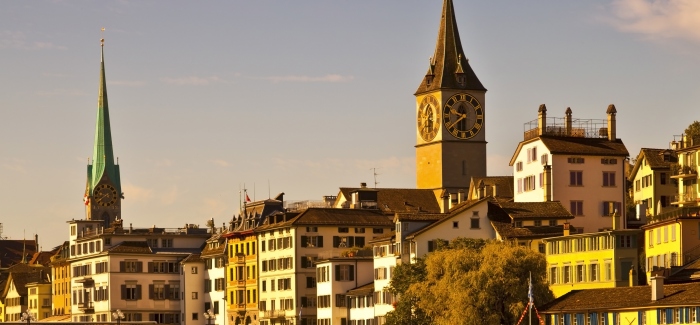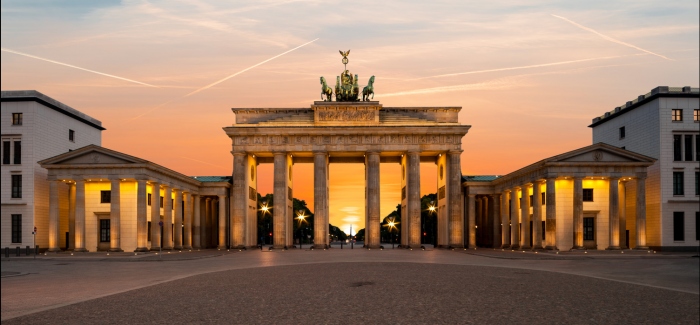Considering studying in Switzerland as a graduate student? Read on to find out more about the country's higher education strengths, and practical information about funding and applications.
In the latest report from the Europaeum, an association of European universities, Switzerland was highlighted as one of just three European countries in which the economic downturn and Eurozone crisis have not had a lasting impact on funding for higher education.
While many European countries have had to freeze or decrease funding for higher education, Switzerland has been able to continue increasing the national budget allocated for universities.
Anders Hagström, director of international educational affairs at ETH Zurich – one of the country’s highest ranked universities – says, “Switzerland is a small country by size but in education, research and innovation it is a world player, with excellent research facilities, a strong economy and many innovative companies.”
World leader in innovation
These claims are borne out by the fact that Switzerland takes the top spot in the World Economic Forum’s Global Competitiveness Report 2011-12, which highlights the country’s strengths in innovation, technological readiness and labour market efficiency, and says its scientific research organizations are among the best worldwide.
Likewise, in the European Commission’s Innovation Union Scoreboard 2011, Switzerland is named as Europe’s clear and consistent innovation leader. In this index, it scores particularly highly in the categories relating to international scientific co-publications, public-private scientific co-publications, licence and patent revenues from abroad, and new doctorate graduates.
Additional factors contributing to Switzerland’s high competitiveness ranking include: strong collaboration between academia and business; high levels of investment in research and development; high patenting rates; excellent infrastructure; highly developed goods and financial markets; and high levels of transparency and accountability.
It’s unsurprising then, that so many multinational corporations have their headquarters in Switzerland, including Nestlé, Novartis and ABB.
High quality of life
International rankings also reflect the country’s high standards of living. In Mercer’s 2011 Quality of Living survey, Zurich is ranked in second place worldwide, and two other Swiss cities – Geneva and Bern – also make the global top ten. These high living standards are accompanied by a relatively high cost of living, but Hagström says, modest tuition fees make the overall package “a very good deal”.
Future job prospects are also good. While the country’s best-known exports are watches, chocolate and cheese, more than half of export revenues come from mechanical and electrical engineering and chemistry. Other key areas include biotechnology and pharmaceuticals, banking and insurance, and mircotechnology. The unemployment rate is relatively low, estimated at 3.9% in 2010.
Aside from financial and career considerations, Switzerland has much to offer. Bordered by France, Italy, Germany and Austria, it’s often described as a fusion of the best attractions of each of these countries, with fine food and wines, thriving arts and culture, and incredible areas of natural beauty.
In this last category, mountains are undoubtedly the country’s dominant feature; of its 41,285 square kilometres, more than 60% is taken up by the Alps – which stretch all the way from France across to Austria.
International diversity
Swiss universities are known for their international diversity; in 2009-10, more than a quarter of those attending the country’s twelve state-run higher education institutes were foreign students. At graduate level and among faculty members, this percentage is even higher – with more than half of PhD students and around 45% of teaching staff coming from outside of Switzerland. This diversity, Hagström says, “makes it easy for new students to make themselves at home.”
Indeed, the population in general is very multicultural – foreign citizens account for about 21% of residents – and also multi-lingual. The country’s four official languages are French, German, Italian and Romansch, but English is also fairly widely spoken, particularly in graduate-level higher education.
Universities in Switzerland are usually divided into two categories – ‘traditional’ universities and universities of applied science. This second category refers to those institutes with a focus on more vocational subjects, such as architecture, information technology, life sciences, chemistry, applied psychology and linguistics, forestry and performing arts.
Fees and applications
“Higher education in Switzerland is publicly funded,” Hagström explains, “so regardless of their nationality, students pay the same modest tuition fees.” These can cost from as little as €1,000 per year (US$1,300), rising up to about €7,000 (US$9,250).
Scholarships are available for international students from the Federal Commission for Scholarships for Foreign Students and from individual universities – though not all countries are included in the government’s scholarship program for international students.
At ETH Zurich, master’s students can apply to the ‘Excellence Scholarship and Opportunity Programme’. In 2011-12, 35 full scholarships were awarded, covering tuition and living costs. For PhD candidates, Hagström says, finances are less of a concern: “PhD students are employed as research assistants with a decent salary, so that takes care of their funding problems.”
Citizens of EU or EFTA members don’t need to apply for a visa beforehand, but must register with local authorities within 14 days of arrival to obtain a residence permit. Those from elsewhere should apply for a visa via their nearest Swiss embassy or consulate, after having received a place and paid the fees up front.
Get set for grad school!
Get all your questions about grad school answered at the QS World Grad School Tour - a chance to meet representatives of leading grad schools from around the world, all in one location and on one day, in a city near you. The event also offers the chance to attend free admissions seminars, collect a complimentary copy of the QS Top Grad School Guide, and apply for exclusive scholarships. Find your nearest event here.













